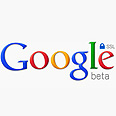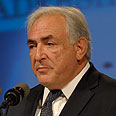

Observers say the phenomenon betrays an obsession in a country with a sensitive history of anti-Semitism.
The device, known as "Autocomplete" on the most popular search engine Google, is designed to save web surfers time by offering, for example, to search for "car parts" or "car rental" to a user typing in "car".
But try entering the name of a politician such as Dominique Strauss-Kahn – the International Monetary Fund head who could challenge for the French presidency next year – in the French version, Google.fr.
As you type, a list of suggestions appears below the search field, revealing what words other web surfers commonly associate with the name.
Along with terms such as "IMF" and "2012" - for those interested in his global finance work or prospects in next year's French presidential election - the fourth commonest search offered in French is "dominique strauss kahn juif" (Jewish).
The "Jewish" term is also offered for searches about France's President Nicolas Sarkozy, his Prime Minister Francois Fillon, and several other members of his three-month old cabinet.
The newspaper Le Monde said that a comparison of searches on various language versions of Google revealed that Autocomplete linked Jewishness to politicians far more commonly in France than in other countries.
The same effect occurs on the French version of another major search engine, Yahoo!
'It goes back to something in history'
"The auto-completion technology used by Google could in theory reveal the mentality of the country where these propositions originate," said Olivier Ertzscheid, an Internet specialist at Nantes University.
"It is not by chance if the word 'Jewish' appears linked to more search queries in France than elsewhere. It goes back to something in the history of the country in question," he told AFP.
French Jews' painful history dates to before the Nazi occupation of the 1940s. The so-called Dreyfus affair in the late 19th century became a by-word for anti-Semitism – a scandal over Alfred Dreyfus, a Jewish military officer exiled for treason and later pardoned, which sparked political upheaval.
The issue still raises its head in contemporary politics. Allies of Strauss-Kahn, who is Jewish, saw implicit anti-Semitism in a recent claim by an opponent that the IMF chief did not embody "the image of rural France".
Autocomplete on the English language Google.com appears not to flag up "Jew" or "Jewish" regularly for prominent US or British political figures, though such words do appear for some foreign leaders.
But Google.fr reveals Francophone curiosity about Britain's prime minister, offering "David Cameron juif."
'Subtle and latent form of anti-Semitism'
Google says that if Autocomplete turns out words judged downright offensive, it removes these on a case-by-case basis -- but merely associating a person and a religion does not necessarily qualify.
"The search queries that you see as part of Autocomplete are a reflection of the search activity of all web users," Google France spokeswoman Anne-Gabrielle Dauba-Pantanacce explained in an email to AFP.
"While we always strive to neutrally and objectively reflect the diversity of content on the web – some good, some objectionable – we also apply a narrow set of removal policies for pornography, violence, and hate speech," she wrote.
In Ertzscheid's view, "what complicates things is that we know that Google corrects certain results, but we do not know which ones.
"It is possible that on Google.com there is more cleaning-up done to delete offensive keywords" than on the other language versions, he suggested.
The Le Monde report's author Stephane Foucart wrote that his findings reflected "a subtle and latent form of anti-Semitism, which seems only to manifest itself when face to face with a computer."
Jean-Yves Camus, a Jewish political scientist specialising in anti-Semitism, interpreted the Autcomplete effect differently, seeing it as a natural "phenomenon of curiosity" in a country with by far the biggest Jewish community in Europe.
"It is totally normal that the phenomenon is more widespread in France, because there are more Jews, and because there are more Jewish personalities in political life" than most European countries, he told AFP.
"The problem is that what you find on the Internet is often rumour and exaggeration."
- Follow Ynetnews on Facebook















